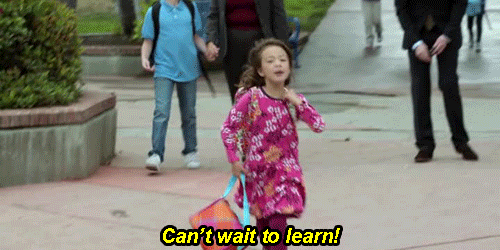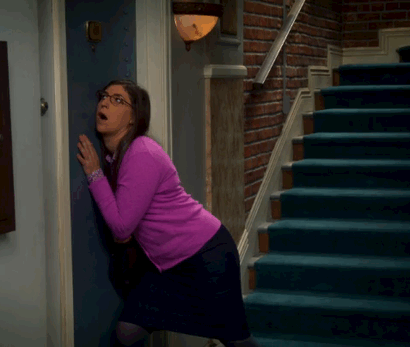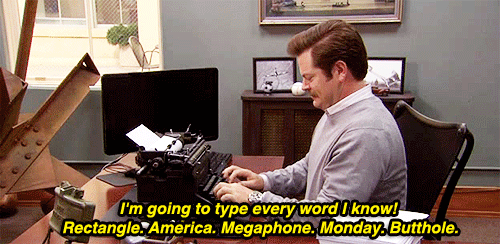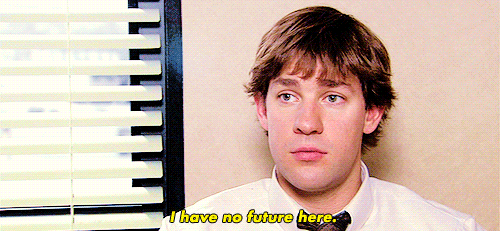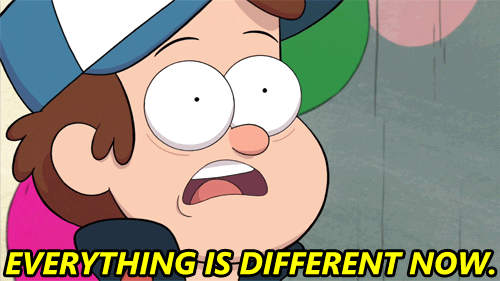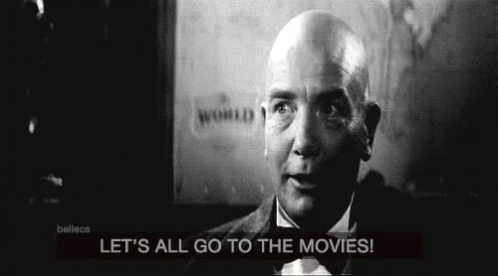Being a screenwriting major, for the most part, is great. Some people may think it's easy to come up with a concept and write some dialogue, but we know it's far more than that. There is a lot of work involved in being a screenwriting major, but it's all worth it when you finally finish that next draft.
1. You don't actually dread to going to class.
At least to your major classes. I can't tell you the amount of times I've heard "Wow, I wish I could talk about movies in class." Well, yeah, that's kinda why I love my major.
2. Your professors are all either "someone" or know someone.
One of my professors wrote most of the episodes for "Roseanne" and is a good friend of hers. Another professor constantly name drops people as if working with Brad Pitt is no big deal. Even a professor at my li'l ol' community college worked on set with John Stamos. You never know who knows who.
3. You've had some really cool opportunities already.
This is especially true if you go to school in Los Angeles (and I imagine New York as well). You'll get to attend advanced screenings and Q&A's. You'll have the chance to volunteer at cool events. Remember those teachers that I mentioned earlier who probably know somebody? Those somebodies might visit your class. All of this and you haven't even begun to actually work in the industry yet!
4. You probably cry a lot.
And if you don't, it's probably because writing is a good coping mechanism. But you're at least aware and a little fearful of the fact that it's really hard to make it in this industry.
5. You have an idea list in your phone.
Some of which you don't remember writing down and are so vague you just can't figure out what the plot was supposed to be. I wish I could remember where I was going with "mafia romcom." That sounds kind of fun to write.
6. You're an expert eavesdropper.
You've definitely had to listen in on other people's conversations for a class assignment. You may have discovered that it works with writing dialogue and now you are a serial eavesdropper. It's the same idea as having a questionable browsing history, like looking up ways to hide a dead body. It's all just research.
7. Meeting page length requirements in other classes is probably really difficult now.
You used to be so good at adding fluff to your papers. But now the idea of being concise is drilled into your brain and using adverbs is something you do with great caution. You also are probably most comfortable with writing in present tense.
8. You probably hate your own writing.
As a student, you're fairly new to writing scripts. You don't have the experience that makes you a great screenwriter just yet, and that's okay. I don't think I've encountered a single classmate that has never uttered the words "Here are my pages. They're terrible. Please help me fix them."
9. You'll never watch movies the same way again.
If you know the length of the film, you'll be able to tell the time without looking at a watch. You'll find yourself cringing at expository dialogue and applauding really great dialogue. Whether you choose to say it out loud or not, you'll notice when the film moves into Act II or when you're watching sequence 6. You also can't stand artsy movies with little or no plot. What's the point?
10. You'll look at life differently.
If something big happens in your life you might think "Wow, this must be my inciting incident!" Or when you're friend is going through something really bad, your way of providing comfort might sound something like "Don't worry. This is just your end of Act II, all-hope-is-lost moment. You're so close to your victory."
11. But it hasn't ruined movies for you.
It really just gives you new things to appreciate. And it also helps you learn what works and doesn't work in order to apply it to your own writing.




